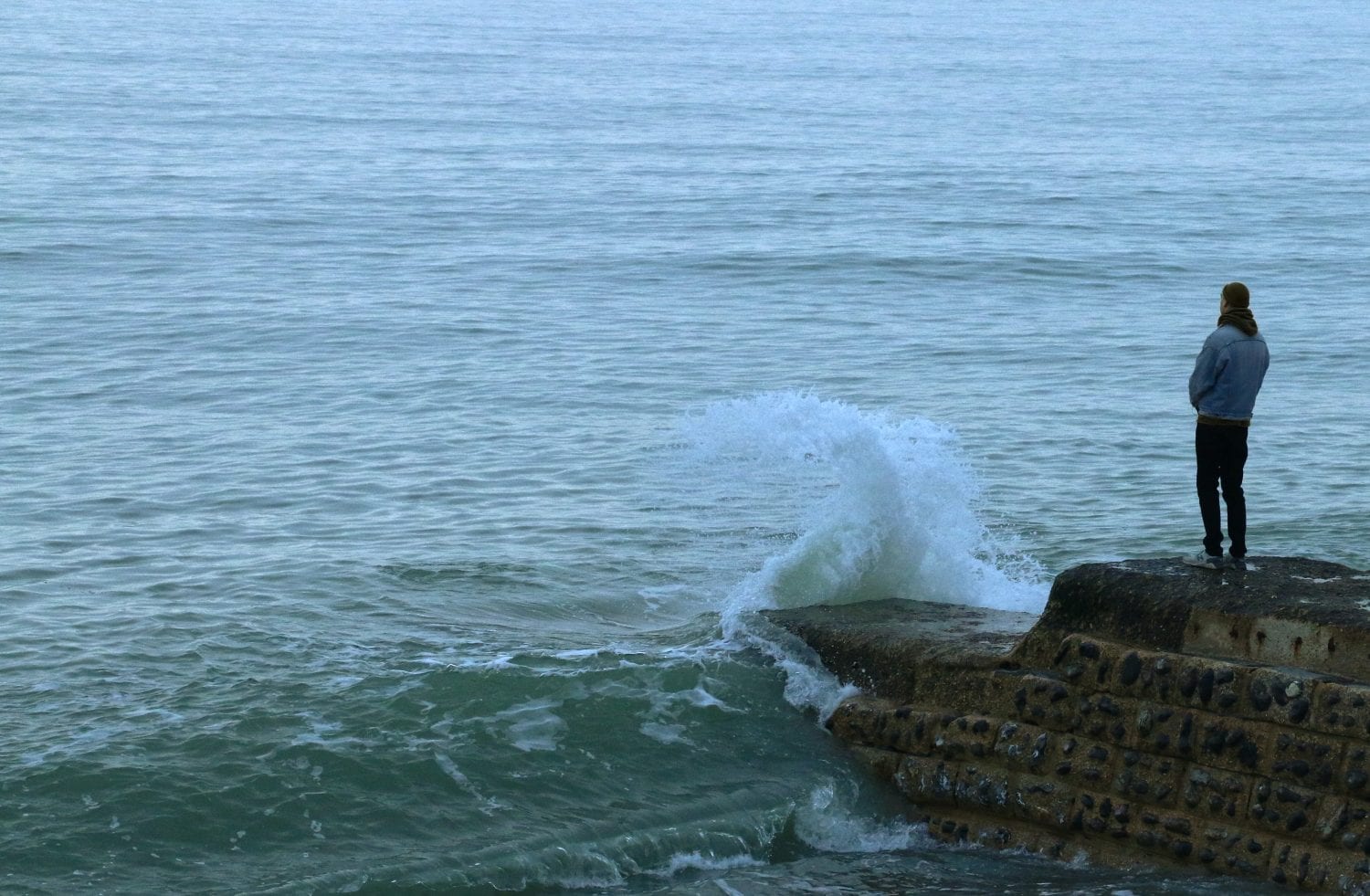
First off, let us say: We feel you. Dealing with big feelings in recovery is no joke. For those of us who have spent a long time running from uncomfortable emotions, getting sober, and facing them is not for the faint of heart. We could even pose that perhaps this is what makes sobering up so hard in the first place: the terror, resistance, and general unwillingness to be uncomfortable for any duration.
But when we finally do get sober, we aren’t left with much choice. When we can no longer numb ourselves and hide from pesky emotions such as grief, anxiety, depression, and shame, there is nothing left to do but face them. But how exactly can we do this while stone-cold sober, without wanting to say, walk directly into the ocean? We’ve been there and have some tips for getting through with a bit of dignity:
Hang Tight
You’ve heard this one before: “The only way out is through.” No feeling lasts forever, and if we are willing to not check out, distract ourselves, or resort to old behaviors, we can simply wait it out. All feelings pass, and our greatest task is to use the tools we’ve learned in recovery to maintain sanity while uncomfortable. When we are honest with ourselves, many of us can admit that most of our truly harmful behavior came in an attempt to avoid discomfort. So hang tight, ask for help, and keep breathing. And the help of a good counselor is invaluable.
Ask for Help
Being connected with a trusted support network is critical. Having someone to check in about your feelings with can be incredibly useful. Talking with someone that can empathize – such as a sponsor, sober friend or counselor can help you remember you aren’t alone. They can offer helpful perspective and remind you that it is never as bad as it seems. Mental health professionals will also be able to advise on a treatment plan, if needed.
Get into Service
Thinking of others is a surefire and time-tested way to feel better. Even if helping others for a few hours doesn’t solve your problem, it is likely to give you fresh perspective and a bit of sane distance from intense emotions. Sometimes a healthy distraction is all we need to relax and get some fresh energy. If you can’t think of any obvious ways to help others, get creative. It can be as small as a warm smile to a cashier, or a check-in call to a friend who has been isolated. The idea is to stop thinking of yourself for a bit. Service to other people in recovery is easy enough, with endless opportunities to offer comfort to someone worse off than you.
Get Curious
Sometimes when we feel ongoing depression and anxiety, taking a peek under the hood is in order. Sure, everyone – no matter how emotionally healthy they are – feels these things from time to time, but if tough feelings persist, they might indicate we have some work to do. Perhaps we are neglecting the work of our recovery, and a deep dive is in order. A trusted counselor, sponsor, or mentor can often help offer clarity on these matters. Many of us have found that ongoing anxiety or depression could be trusted by honest work in the 12 steps and/or the help of a good therapist.
Of course, a robust treatment program will offer tools, insight, and a proper treatment plan for persistent anxiety and depression. Here is a word from our Executive Director on how we at SLO treat anxiety and depression:
Anxiety
For those diagnosed with anxiety, exploring treatment options with our doctors and therapists can be the first step to successfully treating your condition. For many people, medical treatment is not necessary. Sometimes lifestyle changes may be enough to cope with the symptoms. However, in moderate-to-severe cases, medication and diet can help you overcome the symptoms and lead a more manageable day-to-day life.
Depression
At SLO Recovery Center, we realize no two people are affected by depression in the same way. We also realize there is no “one size fits all” treatment to cure depression. SLO Recovery Center will help you become as informed as possible, so you can participate effectively in your own treatment and feel happy and hopeful again. Treatment for anxiety and depression at SLO Recovery Center falls into two categories: psychotherapy and medication. Meeting with our psychiatrist, naturopath, or therapist or will help with learning tools to use and strategies to cope with anxiety when it occurs.
Please note: if you’re having thoughts of suicide and/or have had trouble with chronic, recurring depression or anxiety in the past, it is advisable to speak to someone as soon as possible. Crisis resources in your area can be found here, or at 1-800-273-8255, and you can get in touch with SLO’s trained staff here.

